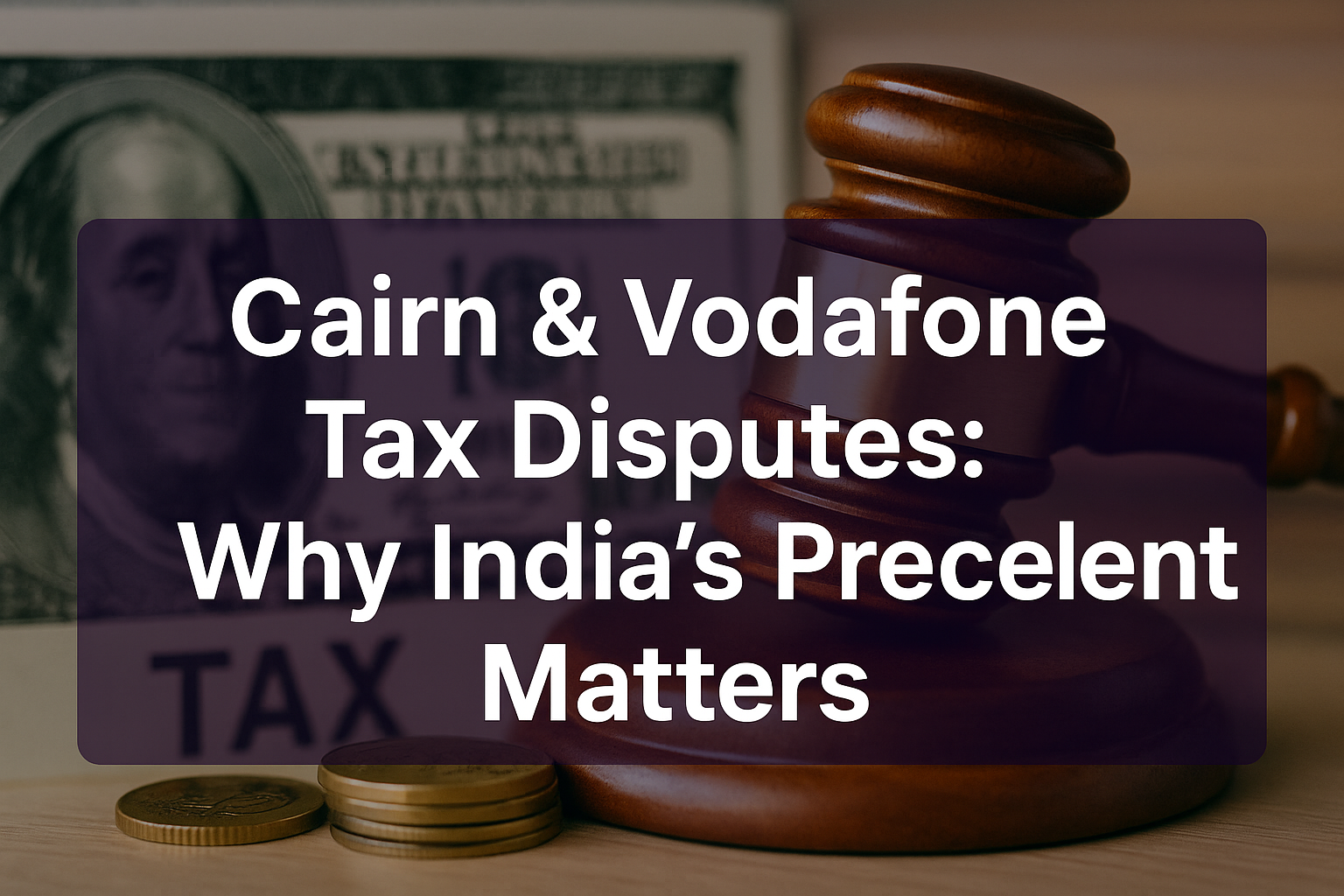Announcement: Lorem ipsum dolor sit amet, consectetur adipiscing elit. Donec et quam blandit odio sodales pharetra.
India must set a proper precedent through both these cases
In the last few weeks, two major tax cases pertaining to Cairn Energy and Vodafone PLC have hogged headlines. Here is why they have a lot of import.

Table of Content
Cairn and Vodafone cases
Both the cases pertain to the sale of a large Indian company and non-payment of capital gains on the profits. In 2012, when the Union Budget introduced the retrospective taxation, both Vodafone and Cairn were asked to pay up billions of dollars towards capital gains. In the case of Vodafone, this pertained to the sale of Hutch to Vodafone in 2007 and the case of Cairn pertained to the sale of Cairn India to Vedanta. In both cases, no capital gains tax was paid as they were executed under the bilateral treaty between India and the UK, exempting such capital gains from tax. Then why is India fighting about it in courts?
Form versus substance debate
The Indian government was of the view that the bilateral treaty was only meant for exempting capital gains tax in the case of genuine transactions. However, in both these cases, the stake sale was deliberately routed through investment vehicles with the sole intent to avoid paying tax. The government had opined that since the deal was in substance an attempt to avoid capital gains tax, such deals should be made taxable under the Retrospective Taxation rules. That was the genesis of the entire dispute.
Circa 2020; what is up
In the last few months, India has faced 2 adverse orders. In September, the IAT ruled against India in the Vodafone tax case. It asked the Indian government to also pay damages to Vodafone for the legal hassles created. Towards the end of Dec-20, the IAT also ruled in favor of Cairn Energy PLC. Since India had held back dividends and tax refunds to Cairn against this pending case, the IAT asked India to pay these monies to Cairn with interest. Clearly, in both the cases, the IAT has dwelt on the preponderance of the bilateral treaty signed between India and the UK to justify their orders. In both the cases, the IAT has given India 90 days to appeal against the order and India has already appealed in Vodafone case and the Cairn appeal will follow.
Time to set a precedent
In a way, what Indian government says is fairly justified. There is no reason to allow global companies to do mega deals in India without paying tax. For example, Wal-Mart has paid taxes on its Flipkart deal. Countries like Singapore have attracted foreign investments on the basis of their strong regulatory and business–friendly environment. That is the model for India to follow. India must aggressively appeal against both the Cairn and Vodafone IAT rulings. It is time to set a precedent that investors cannot come into India and do big deals and also save on capital gains tax! ©
Comments